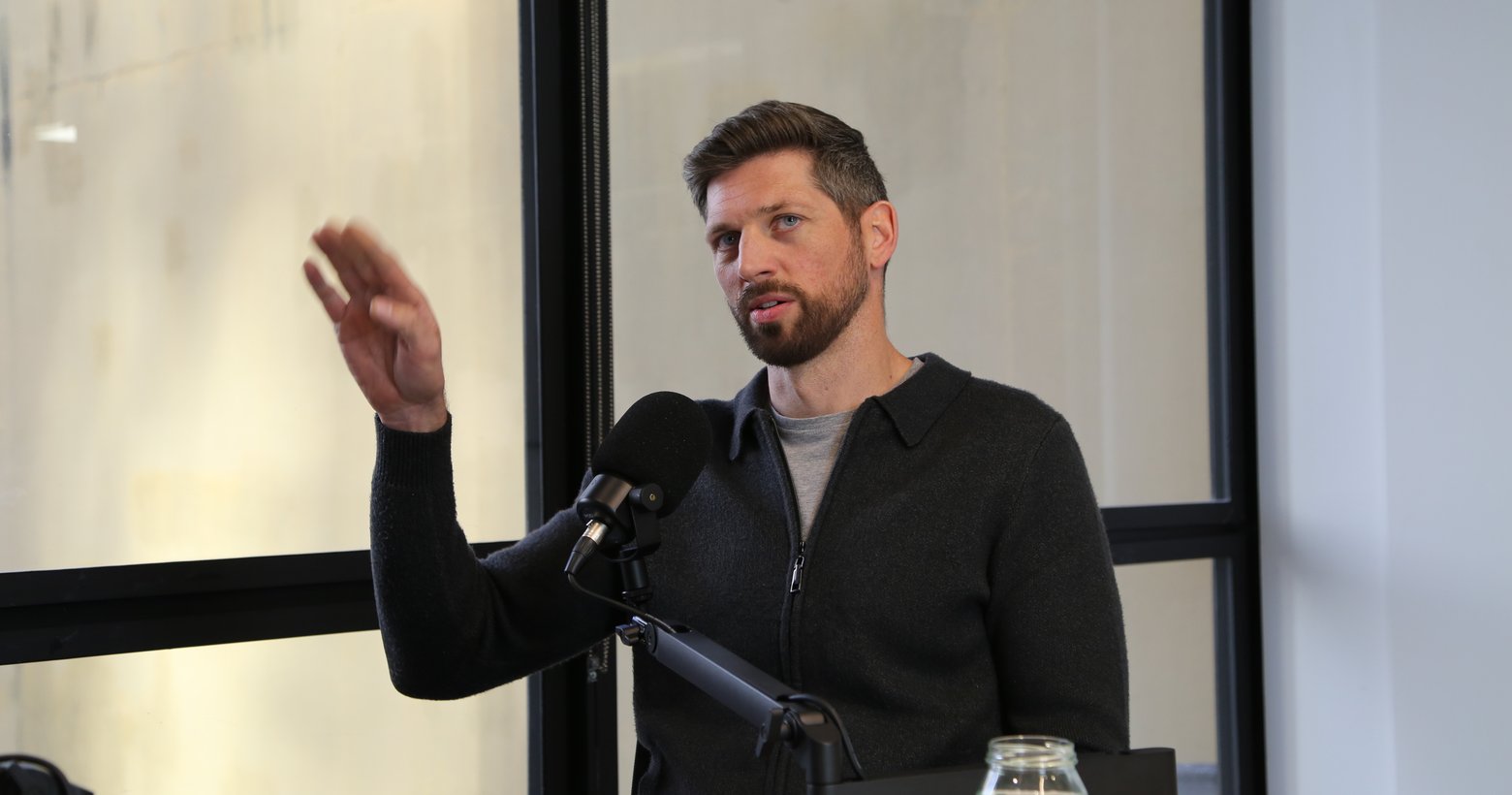Resilience is a Skill: Why Technology Leaders Must Build, Not Just Endure

In the latest episode of A Human Element, host Adam Higgins sits down with Matt Hughes, global resilience expert, psychologist, and now the Head of People and Performance at The Transformation Group. What unfolds is more than a conversation—it’s a compelling reframe of a word we throw around far too easily in today’s workplace: resilience.
Through his company Ripen, With experience working across 30 countries and coaching more than 2,500 teams globally, Matt has spent the last decade decoding what resilience really looks like—beyond buzzwords, beyond blind optimism, and definitely beyond the burnout that so many high-performing leaders silently battle.
And if there’s one takeaway for senior executives leading through complexity, it’s this: resilience isn’t about bouncing back. It’s about moving forward—deliberately, strategically, and sustainably.
Redefining Resilience: It’s Not About “Toughing It Out”
For many leaders, resilience is still seen as endurance. The ability to withstand pressure. To push through. To keep going.
But as Matt shares, that belief is not just flawed—it’s dangerous.
“I thought I was resilient,” he says, reflecting on a career that spanned finance, sales, and executive leadership. “I’d built a global career, emigrated, started a family. Then everything hit at once—grief, job loss, injury, relationship breakdown. I realised my resilience was built like a deck of cards.”
The hard truth? High-functioning people often confuse performance with resilience—until something gives way. And when it does, the tools that carried them through achievement aren’t always the tools that help them recover or adapt.
That moment of reckoning led Matt to retrain in psychology and ultimately build Ripen, a resilience consultancy that now sits within The Transformation Group.
His message to leaders: you’re not immune. And you don’t build resilience by doing more. You build it by doing it differently.
The Myth of the Bounce-Back
One of the most powerful reframes in the conversation is this: we don’t “bounce back” from adversity. We’re changed by it. The idea that we can return to who we were before the challenge is not only unrealistic—it’s counterproductive.
“Resilience,” Matt explains, “isn’t about rebounding. It’s about reintegrating. About becoming a better version of yourself as a result of what you’ve gone through.”
And for leaders, this matters deeply. Because clinging to old ways of thinking, leading, or managing through constant change is the fastest route to irrelevance—or exhaustion.
Instead, Matt encourages a mindset of iteration. Just like Agile methodology asks us to iterate systems and processes, resilience demands that we iterate ourselves. That we evolve with intent.
Self-Awareness Is a Leadership Competency
Across the episode, Matt returns to one central idea: the most powerful resilience skill isn’t grit. It’s self-awareness.
That means being able to track your mindset, not just your to-do list. It means noticing the warning signs of stress or depletion—before performance drops or relationships suffer.
And it’s deeply strategic.
“If you can’t manage yourself,” Matt says, “you can’t lead others. It’s that simple.”
He uses a deceptively simple tool—a daily check-in, asking himself: What’s my number today? On a scale from 1 to 10, how resourceful am I? How clear-headed, calm, or reactive?
It’s not just reflection—it’s regulation. The ability to course-correct early, not after the damage is done.
For technology leaders managing complexity, ambiguity, and constant context-switching, this kind of self-leadership isn’t optional. It’s the multiplier for everything else.
Burnout is Not a Badge of Honour
The conversation also exposes a subtle but pervasive trap in corporate life: equating busyness with worth.
From inboxes checked before bed to jam-packed diaries and late-night Slacks, many leaders have unintentionally bought into the myth that constant motion equals impact.
Matt calls it out: “You don’t get more resilient by working harder. You get resilient by recovering better.”
Drawing from elite sport and military training, he introduces the idea of off-seasons—something we embrace in every high-performance discipline except the workplace.
“Professional athletes don’t train 365 days a year. If they did, they’d burn out in three.”
The lesson? High performance isn’t about stamina. It’s about sustainability. And that requires rest as rigorously as it requires effort.
Rebuilding Resilience Across the Workforce
As businesses hurtle into AI-driven disruption, change fatigue is real—and rising. And it’s not just your systems that need an upgrade. Your people do, too.
But that doesn’t mean pushing harder. It means equipping teams to adapt—to regulate their energy, reframe challenges, and take ownership of their mindset.
That starts with leadership.
“People don’t just need direction,” Matt says. “They need leaders who create the conditions for clarity, for recovery, for growth.”
Because transformation isn’t just what we implement. It’s how we lead people through it. And in a world of constant change, the leaders who thrive will be those who model resilience—not through bravado, but through boundaries, self-awareness, and a commitment to continuous self-maintenance.
Final Thoughts: The ROI of Self-Maintenance
Matt leaves us with one final reframe: think of resilience not as self-care, but as self-maintenance.
Just like a high-performance machine, humans need tune-ups. Daily habits. Psychological fuel. And space to recover.
It’s not indulgent. It’s essential.
Because in a world where change is constant, resilience isn’t the reward for surviving—it’s the requirement for leading well.
Want more from Matt?
Listen to the full episode of A Human Element on Spotify or YouTube—where he dives deeper into mindset, recovery, and leading in today’s fast-paced world.